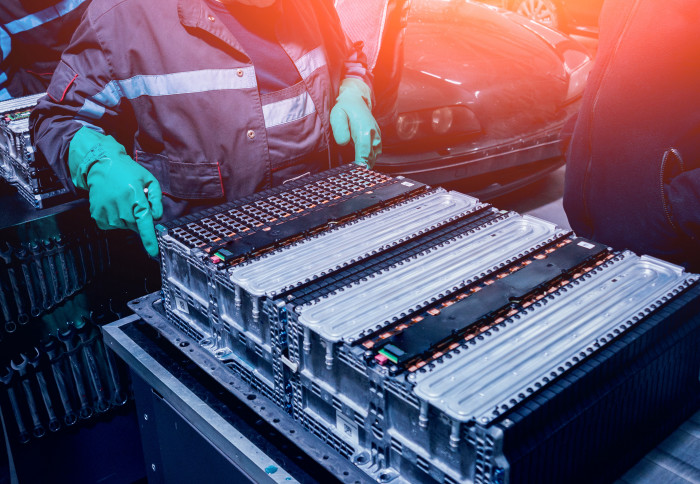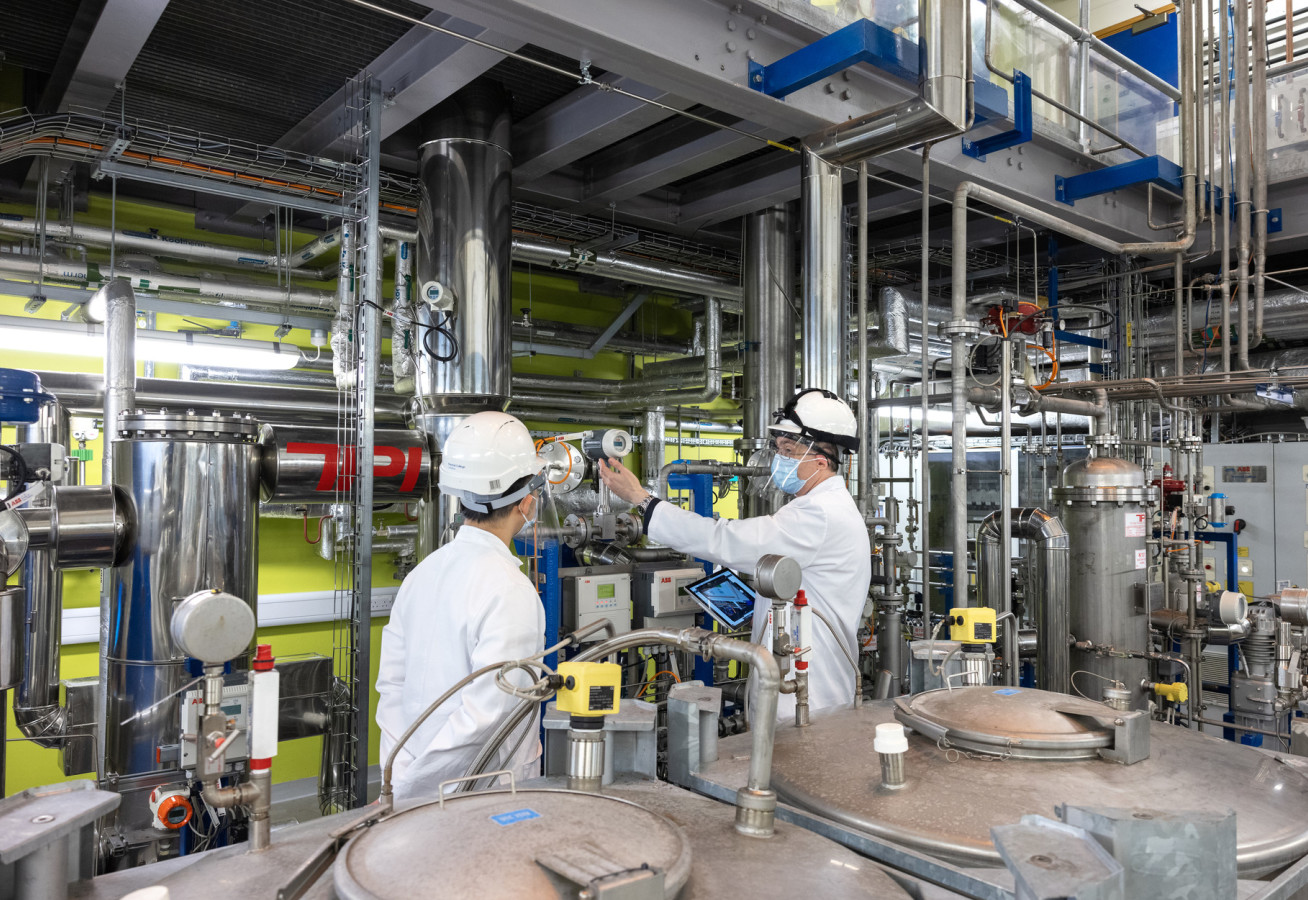£12m partnership to help energy systems transition to net zero pollution by 2050

Imperial, Shell and Diamond Light Source are launching an EPSRC-funded Programme on materials and processes for the energy transition.
The EPSRC Prosperity Partnership, known as InFUSE, will examine how technologies like batteries, electric vehicles, chemical production, and carbon capture and storage (CCS) can be improved by understanding interfaces in these systems, enhancing sustainability and enabling a transition to a green economy.
Transitioning to renewable, sustainable energy needs us all to think a little differently. Professor Mary Ryan
The partnership will involve collaborative research across the College including the Departments of Materials, Mechanical Engineering, Chemical Engineering, Earth Science and Engineering and Chemistry. It will form part of the Transition to Zero Pollution initiative at Imperial, which aims to inspire fundamental changes in areas such as the way materials are used in manufacturing and how we produce food and energy.
Academic lead Professor Mary Ryan, Vice-Dean (Research) at Imperial College London’s Faculty of Engineering, said: “Transitioning to renewable, sustainable energy needs us all to think a little differently. This Partnership will build on our existing relationships to pursue exciting new directions where we aim to control interfaces in energy systems to optimise efficiency, function, and lifetime, ultimately reducing greenhouse gases and helping to fight climate change.”
Supporting decarbonisation
The Programme is co-led by Dr Selda Gunsel (Vice President Technology at Shell), Professor Chris Nicklin (Science Group Leader, Diamond Light Source) and Imperial’s Professor Daniele Dini (Mechanical Engineering) and Dr Ronny Pini (Chemical Engineering). It brings together three existing Imperial-Shell research programmes in Advanced Materials, Fuels and Lubricants, and Digital Rocks.

Sinead Lynch, UK Country Chair of Shell, said: “These new insights will support development of many technologies needed for decarbonisation, including CCS, batteries, improved catalysts and new lubricants for electric vehicles. I’m really proud of our university partnerships, such as the one with Imperial, and the role they play in advancing the knowledge that will help the UK on the path to net zero emissions.”
The path to net-zero by 2050 requires both innovation and optimisation of new technologies across the energy cycle from generation to storage, as well as in mitigation such as carbon capture.
This partnership aims to improve the efficiency, stability and longevity of systems by controlling the complex interfaces – the area where two interacting substances meet – on which these technologies rely, delivering a pathway to meet the UK’s ambitious targets for the energy transition.
Harnessing combined expertise
Professor Ryan, of Imperial’s Department of Materials, said: “Partnering with Diamond, the UK’s National Synchrotron Facility, brings a wealth of experience in developing operando capabilities and the opportunity to develop new tools to measure materials in the complex real-world conditions we need to study. Using our combined expertise and state-of-the-art facilities we will be able to observe these interfaces in ways never done before.”
By bringing together business and research expertise in regions across the UK, we will help to drive local economic growth and create highly skilled jobs, all while cementing the UK’s status as a science superpower. Kwasi Kwarteng Business Secretary
By developing a better understanding of interfaces, researchers will be better able to design new materials, devices, and optimised processes that have reduced energy demand or longer productive lifetimes.
InFUSE, which will launch in summer 2021, will look at these interfaces across Shell’s business units: in grid-scale battery systems, lubricants for use in electric vehicles, new catalysts for producing sustainable chemicals, and how best to store captured carbon underground.
Business Secretary Kwasi Kwarteng said: “As we build back better through innovation, we are putting the funding and structures in place so those at the top of their field – in business, research and academia – can develop world class products and technologies that could change all our lives for the better. The partnerships we are throwing our weight behind today all have innovation at their core.
“By bringing together business and research expertise in regions across the UK, we will help to drive local economic growth and create highly skilled jobs, all while cementing the UK’s status as a science superpower.”
Engaging the next generation
The programme will fund more than 20 new PhD studentships at Imperial, creating interdisciplinary cohorts working together towards the energy transition. InFUSE will prioritise engaging with diverse groups of the next generation of thinkers who will pave the way for a greener, more sustainable world.
Professor Ryan said: “InFUSE is committed to improving diversity in science and engineering. Through outreach programmes, PhD studentships, and representation, we will champion diverse groups, which will be crucial in addressing the skills gap in the UK’s transition to a green economy.”
Imperial’s Transition to Zero Pollution
Imperial pioneers multi-disciplinary approaches to global problem-solving through the creation of Centres of Excellence and Networks of Excellence that draw in research groups from different departments and faculties.
Transition to Zero Pollution, launched in 2020 is a beacon of Imperial’s Academic Strategy, and its vision is to realise a sustainable zero pollution future by inspiring a radical shift in industrial systems, technologies, and business models, underpinned by the development of innovative policies and governance structures. The strategy underpins the approach that InFUSE will take – drawing together multidisciplinary teams to create new ways of thinking and delivering solutions through innovation.
Article supporters
Article text (excluding photos or graphics) © Imperial College London.
Photos and graphics subject to third party copyright used with permission or © Imperial College London.
Reporter
Caroline Brogan
Communications Division